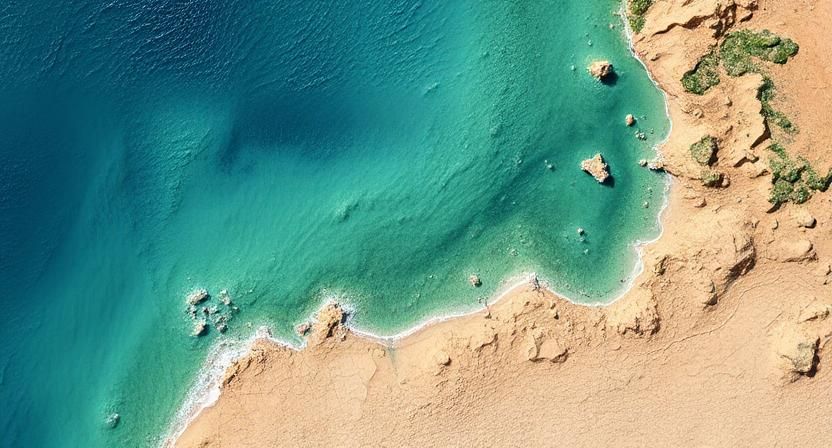Latvia’s coastal communities are undergoing a renaissance spurred by the decline of Baltic cod stocks. With traditional fishing waning, towns are pivoting to tourism and seafood processing as new lifelines for their economies.
Decline of Cod Stocks and Environmental Challenges
The Baltic Sea, once a thriving ground for cod fishery, is now presenting challenges that threaten its cod population. Factors such as declining salinity levels are undermining the conditions needed for cod to flourish, creating a stark reality for Latvia’s fishing villages that once buzzed with activity.
With stricter regulations imposed by the European Union on allowable fish catches, there are increasing discussions around a potential total ban on cod fishing. While this move aims to help the species recover, it has also left local communities in dire straits, prompting them to seek alternative economic support.
Tourism on the Rise: New Marinas and Yachting Ventures
As a response to the dwindling fishing industry, many coastal towns are transforming into vibrant tourist hubs. In Engure, for example, the construction of a new marina has paved the way for recreational boating and land excursions. This initiative has even attracted international investors, with a notable French investor establishing a yacht-building shipyard in the area.
This shift towards tourism is starting to nip at the heels of former fishing prominence. The 494-kilometer coastline of Latvia is beginning to be recognized for leisure maritime activities, repurposing its identity from a fishing town to a tourist destination.
From Fishing to Gourmet Seafood Production
Once reliant on large hauls of fish sent to markets in Russia and Britain, Latvia’s fishing output has changed dramatically. Back in the 1980s, fishers brought in an impressive 55,000 tons of Baltic cod annually. Today, the quota has plummeted to just 16 tons per year, primarily as by-catch while targeting other fish.
In light of these changes, the Latvian seafood industry has adapted by focusing on high-quality products. Former manufacturers of canned fish are now crafting premium, export-grade items like herring and anchovies. These gourmet products can be found on shelves from American retailers to grocery stores in Australia and Japan, symbolizing Latvia’s shift from volume to quality.
Navigating New Markets and Challenges
Political shifts have also reshaped Latvia’s seafood trading landscape. The annals of recent history — notably the annexation of Crimea in 2014 and conflicts in Ukraine — have closed off traditional markets. In response to sanctions, Latvian seafood exporters have begun to set their sights on new trading partners.
Export reports reveal Latvia’s seafood now reaches countries such as Canada, Ukraine, Poland, Romania, Denmark, and the UK, while new markets have opened in South Africa and the Arab world, creating a broader international presence.
Guesthouses and Cultural Experiences Along the Coast
As the fishing industry fades, many families in coastal towns have adapted by converting fishing estates into guesthouses. In Berzciems, a family has turned their fishing business into a vibrant tourism opportunity, offering visitors insights into Latvia’s fishing history and the chance to savor fresh seafood at their café.
The local’s mission is to share the rich fishing heritage of the region, with tours that include leisure walks along the dunes and stories of traditions passed down through generations.
Tourism Boom in Ventspils
Ventspils, a bustling port city in western Latvia, has actively embraced this tourism influx. The former mayor, Aivars Lembergs, has emphasized how the diversification into both manufacturing and tourism has been integral to the city’s rejuvenation.
During the summer months, Ventspils attracts numerous tourists, especially from neighboring Lithuania, enhancing its stature as a summer retreat along the picturesque Baltic coastline.
A Future Steered by Tourism in Latvia’s Coastal Communities
As traditional fishing decreases, Latvia’s coastal towns are showcasing remarkable adaptability by embracing the tourism sector. From marinas to seafood experiences and cultural tours, these communities are finding innovative paths to economic sustainability.
While the future of Baltic cod remains uncertain, Latvia’s coastal villages are identifying creative solutions to thrive in a transforming world, reinforcing their resilience and entrepreneurial spirit.
In conclusion, the evolving landscape—marked by the shift from fishing to tourism and premium seafood production—illustrates Latvia’s resourcefulness. For travelers, it presents an opportunity to explore unique cultural experiences while contributing to local economies. Those looking to dive into this vibrant tourism scene will find that booking transfers and personalized journeys is seamless with LocalsRide.com, which offers unmatched transparency and a variety of options, ensuring an enjoyable travel experience without breaking the bank. Book your ride with LocalsRide.com.
Even the most insightful reviews can’t replicate the essence of personal experience. Offering access to a range of vehicles with licensed drivers at affordable prices, LocalsRide empowers travelers to make the best choices—emphasizing convenience, variety, and affordability. You’re just a booking away from your next adventure! Rezervujte si jízdu.

